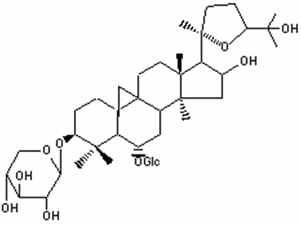Smithx, what I really appreciate is that you are ready to do something, not only the grey theory and talking about wonderful things, which may come in future, but directly trying to do something. I was also very interested in TA-65 although only telomerase activation may not be the only key to keep the cells away from the aging process. What I do not understand, is that all are so focussed on TA-65, an ingredient which is assumed to elongate the telomeres, although not even 1 study about astragalus and this activity can be found on www.pubmed.gov .
Perhaps my sceptical opinion about TA-65 has something to do with my studies (med. molecular bio.) and that I always want to see some more scientific evidents, so I like more abstracts published on pubmed, some scientists risking their reputation by publishing such amazing facts and not only a mysterious patent.
On the one side you have TA-65, everybody trying to guess what could it be, it is unbelievable expensive and no studies.
On the other side, there is Epitalon, about nobody seems to be really interested, a peptide which was investigated in several studies, even on human somatic cells and shows the activation of telomerase and the prolangation of telomeres. (1)
"Addition of Epithalon peptide in telomerase-negative human fetal fibroblast culture induced expression of the catalytical subunit, enzymatic activity of telomerase, and telomere elongation, which can be due to reactivation of telomerase gene in somatic cells and indicates the possibility of prolonging life span of a cell population and of the whole organism." So it does help the cell bypassing the Heyflick limit. (2)
Read this:
"Primary pulmonary fibroblasts derived from a 24-week fetus lost the proliferative potential at the 34th passage. The mean size of telomeres in these cells was appreciably lower than during early passages (passage 10). Addition of Epithalon to aging cells in culture induced elongation of telomeres to the size comparable to their length during early passages. Peptide-treated cells with elongated telomeres made 10 extra divisions (44 passages) in comparison with the control and continued dividing. Hence, Epithalon prolonged the vital cycle of normal human cells due to overcoming the Heyflick limit."There were also some studies done on mice, where it shows anti aging properties, elongating the mean and maximum life span. Furthermore Epitalon protects from some sorts of cancer. (3)
Read the cited studies and other on your own and then try to find something similar with the astragalus, TA-65 and so on. The scientists (Khavinson, Anisimov) who have done this studies with Epitalon, are working a long time in the aging research.
You suggest to to be the first test person and you are ready to invest 25% of this huge amount of money to get the TA-65?
Why invest so much money in something even not proved to work. Why losing time with speculation about the molecular structure?
Why not buying a real telomerase activator instead of a 20.000 USD (may-work) supplement?
I would rather invest my money in something that really works, was tested in several studies and does not cost so much. Epitalon may be very expensive when buying it from several manufacturers but I have the possibility to get it much more cheaper in bulk, it is a simple tetrapeptide, the structure is known and it is not difficult to synthesize and cheap in bigger amounts, cheaper then the mysterious TA-65. I will focus on Epitalon, if somebody is also interested PM me.
(1)
Khavinson VKh, Bondarev IE, Butyugov AA.
Epithalon peptide induces telomerase activity and telomere elongation in human somatic cells.
Bull Exp Biol Med. 2003 Jun;135(6):590-2.
(2)
Khavinson VKh, Bondarev IE, Butyugov AA, Smirnova TD.
Peptide promotes overcoming of the division limit in human somatic cell.
Bull Exp Biol Med. 2004 May;137(5):503-6.
(3)
Anisimov VN, Popovich IG, Zabezhinskiĭ MA, Rozenfel'd SV, Khavinson VKh, Semenchenko AV, Iashin AI.
[Effect of epitalon and melatonin on life span and spontaneous carcinogenesis in senescence accelerated mice (SAM)]
Vopr Onkol. 2005;51(1):93-8.
Edited by aidanpryde, 23 January 2008 - 03:00 PM.































 This topic is locked
This topic is locked



















